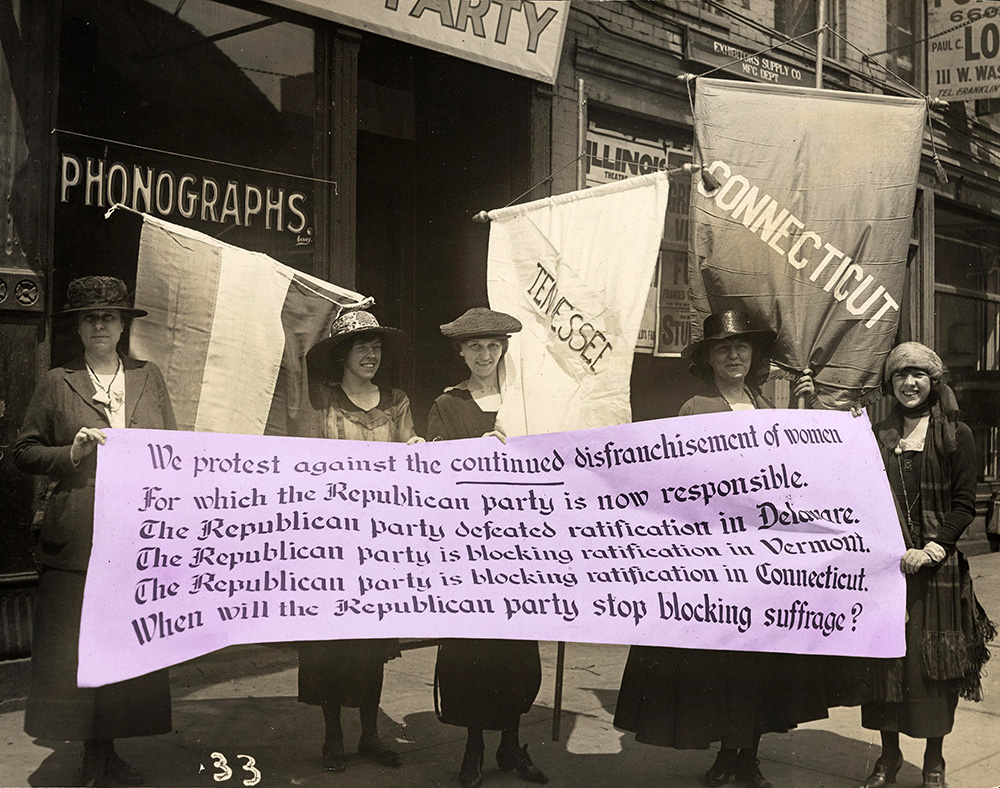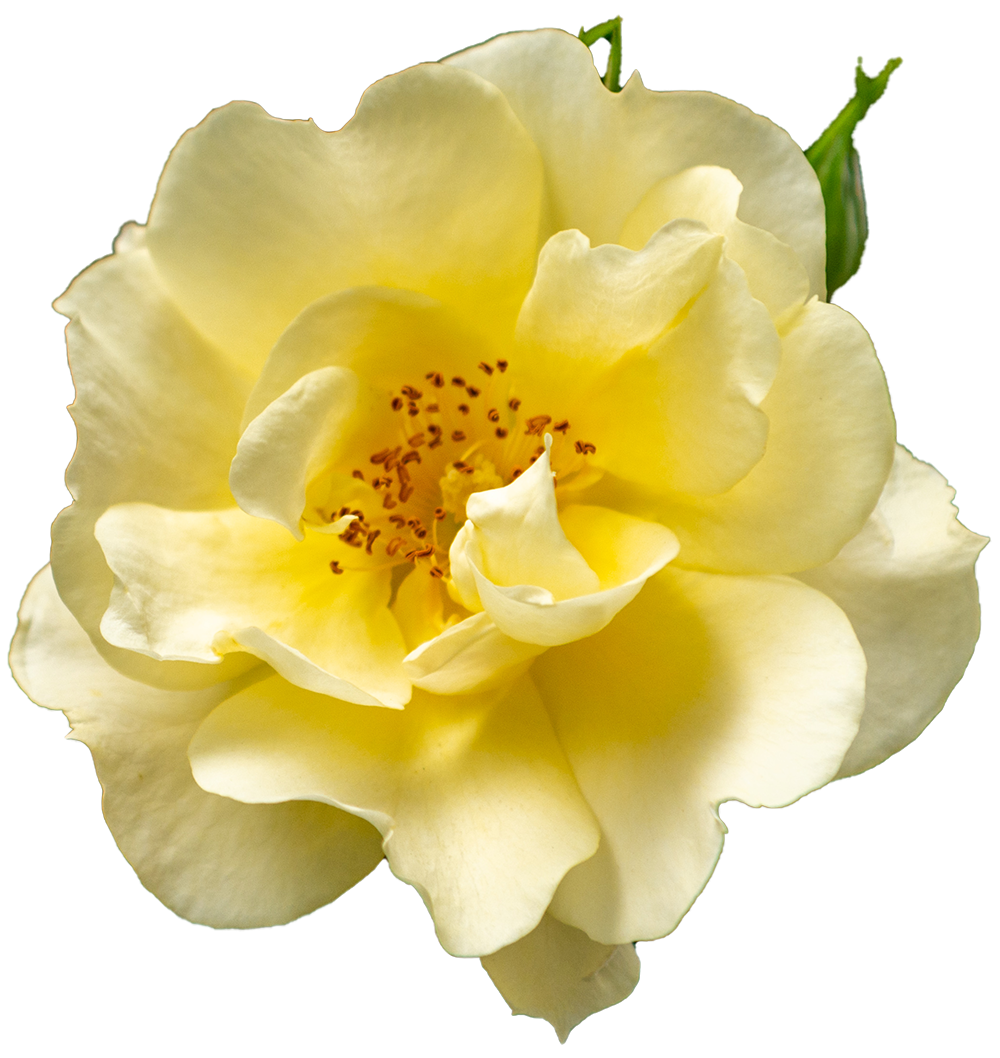
Party members picket at the Republican convention in Chicago in June 1920. The woman on the far right is Betty Gram. (Courtesy of Library of Congress)
Enlarge Image
Party members picket at the Republican convention in Chicago in June 1920. The woman on the far right is Betty Gram. (Courtesy of Library of Congress)
Enlarge Image Welcome to
On Her Own Wings: Oregon Women and the Struggle for Suffrage, a web exhibit celebrating the centennial of the 19th Amendment to the U.S. Constitution affirming a woman's right to vote. The exhibit tells the story of the struggle for suffrage—both in Oregon and across the nation. Illustrated with historic photos, texts, contemporary analyses, and documents, this exhibit guides visitors through the events, context, organizations, and prominent suffragists of the era.
On Her Own Wings focuses around 25 women’s rights advocates who operated in the heyday of this early civil rights movement both nationally and in Oregon. Famous figures like Susan B. Anthony and local suffragist Abigail Scott Duniway feature alongside less-known Oregon activists like Beatrice Cannady, Dr. Marie Equi, and Hattie Redmond. Organized alphabetically, the biographical sketches in the exhibit examine the lives and ideals of these suffragists, as well as the people for whom they advocated.
It can be hard to imagine a United States without women voters, and
On Her Own Wings offers insight into the segregated society these suffragists aimed to change. The exhibit presents the historic arguments for and against woman suffrage in Oregon, as well as social movements like progressivism and prohibition that influenced those views. Racial inequality defined many aspects of American life in this era, and the exhibit also explores some of the extraordinary barriers to voting overcome by women of color in the United States.
 Yellow roses, as well as sunflowers, symbolized the suffrage movement. (Oregon State Archives Image)
Yellow roses, as well as sunflowers, symbolized the suffrage movement. (Oregon State Archives Image) Activists do not operate alone, and
On Her Own Wings details over a dozen prominent woman suffrage groups that took part in the struggle. Some have a history stretching back to the end of the Civil War and many are still active to this day. Although they vary widely in size, scope, and tactics, all believed that women suffered unjustly and that action must be taken.
The exhibit showcases those actions through some of the most famous developments during the struggle for suffrage. From the Seneca Falls Convention of 1848 to the 19th amendment’s ratification in 1920, visitors can see how public sentiment toward woman suffrage changed over time. Finally,
On Her Own Wings explores how through undaunted agitation, the women of Oregon used the state’s unique initiative and referendum voting system to win suffrage in 1912, nearly a decade before the constitutional amendment, and laying the foundation for universal woman suffrage.
Next:
History and Context >